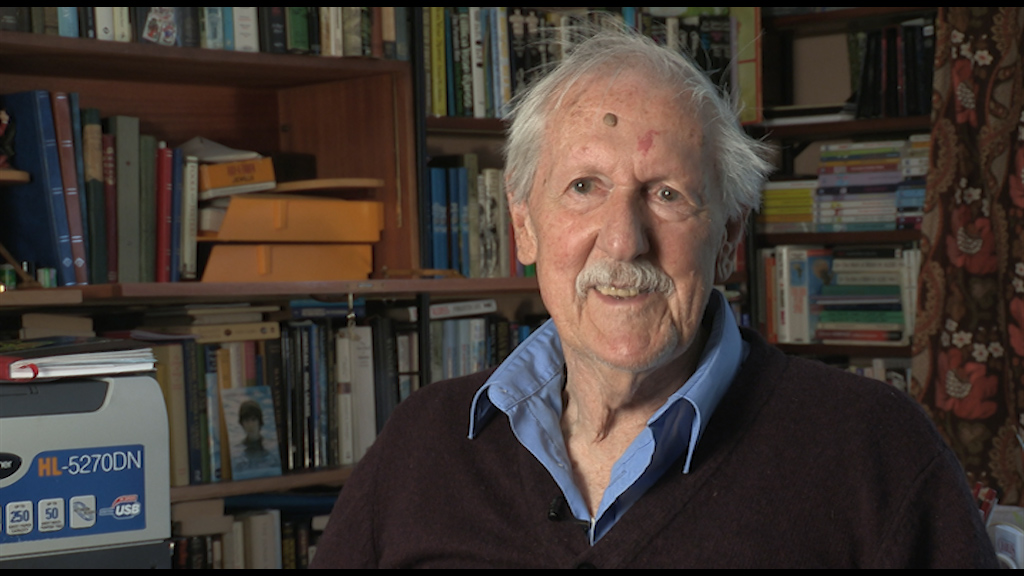NEXT STORY

Working with a genius
RELATED STORIES

NEXT STORY

Working with a genius
RELATED STORIES


|
Views | Duration | |
|---|---|---|---|
| 61. Hidden treasures of Serbia | 53 | 02:44 | |
| 62. Lord Byron’s legacy to Montenegro | 51 | 02:09 | |
| 63. Nocturnal yodelling on the island of Mljet | 29 | 02:15 | |
| 64. The Englishman’s aversion to science fiction | 54 | 04:12 | |
| 65. Without science fiction there’d be no Bovril | 71 | 03:25 | |
| 66. More on Billion Year Spree | 49 | 04:33 | |
| 67. Stanley Kubrick’s house | 313 | 03:46 | |
| 68. Working with a genius | 219 | 02:43 | |
| 69. Stanley Kubrick sets the bar high | 155 | 03:56 | |
| 70. Steven Spielberg steps into the breach | 117 | 02:58 |


Supertoys Last All Summer Long. When you think about that pretty title, it's not so nice.
Summer doesn't last forever, and that, in a way, is the essence of the story. And people liked that story wherein a small boy is programmed to think of himself as a small boy, but he's not actually, he's a machine. But, he is made in a world where the population has grown so much that you have to get some form of permission to have a child so that his 'mother' has this boy and the boy thinks he's real. There was something touching about that story – oh, and this little artificial boy has a little artificial teddy bear that keeps him company. And this story touched a lot of people... well, it touched me. I thought it was a charming story. And eventually I heard through my agent, that Stanley Kubrick wanted to make a film of it. Would I go and work with him?
At that time, we were living rather comfortably on Boar's Hill, and a limousine would come every morning and collect me and take me north of St Albans to where Stanley Kubrick and his wife and daughters lived. And the funny thing was that I knew something about that house. I knew that it had been built – or I thought I knew, let's put it that way – I thought I knew that it had been built by a millionaire known as Solly Joel. How did I know of Solly Joel? Because my father, after World War I, was not in the best of health and the doctor had said to him, 'Look, Stanley, if you want to survive the winter, you better go somewhere warm'. And so Stanley had got on a liner that was going to South Africa for the winter, and on that liner was Solly Joel. And somehow my father got to know him and be friendly with him.
That's the end of the story, but it was curious to go to that house and to know that about it. And it was full of vast rooms, many of which were full of antiquated machinery: cameras, etc. which, of course, was part of Kubrick's hobby, and one of which he developed to use in a movie without overhead lighting.
Brian Aldiss (1925-2017) was an English writer and anthologies editor, best known for his science fiction novels and short stories. He was educated at Framlingham College, Suffolk, and West Buckland School, Devon, and served in the Royal Signals between 1943-1947. After leaving the army, Aldiss worked as a bookseller in Oxford, an experience which provided the setting for his first book, 'The Brightfount Diaries' (1955). His first science fiction novel, 'Non-Stop', was published in 1958 while he was working as literary editor of the 'Oxford Mail'. His many prize-winning science fiction titles include 'Hothouse' (1962), which won the Hugo Award, 'The Saliva Tree' (1966), which was awarded the Nebula, and 'Helliconia Spring' (1982), which won both the British Science Fiction Association Award and the John W Campbell Memorial Award. Several of his books have been adapted for the cinema. His story, 'Supertoys Last All Summer Long', was adapted and released as the film 'AI' in 2001. His book 'Jocasta' (2005), is a reworking of Sophocles' classic Theban plays, 'Oedipus Rex' and 'Antigone'.
Title: Stanley Kubrick’s house
Listeners: Christopher Sykes
Christopher Sykes is an independent documentary producer who has made a number of films about science and scientists for BBC TV, Channel Four, and PBS.
Tags: Stanley Kubrick, Solly Joel
Duration: 3 minutes, 46 seconds
Date story recorded: September 2014
Date story went live: 17 August 2015